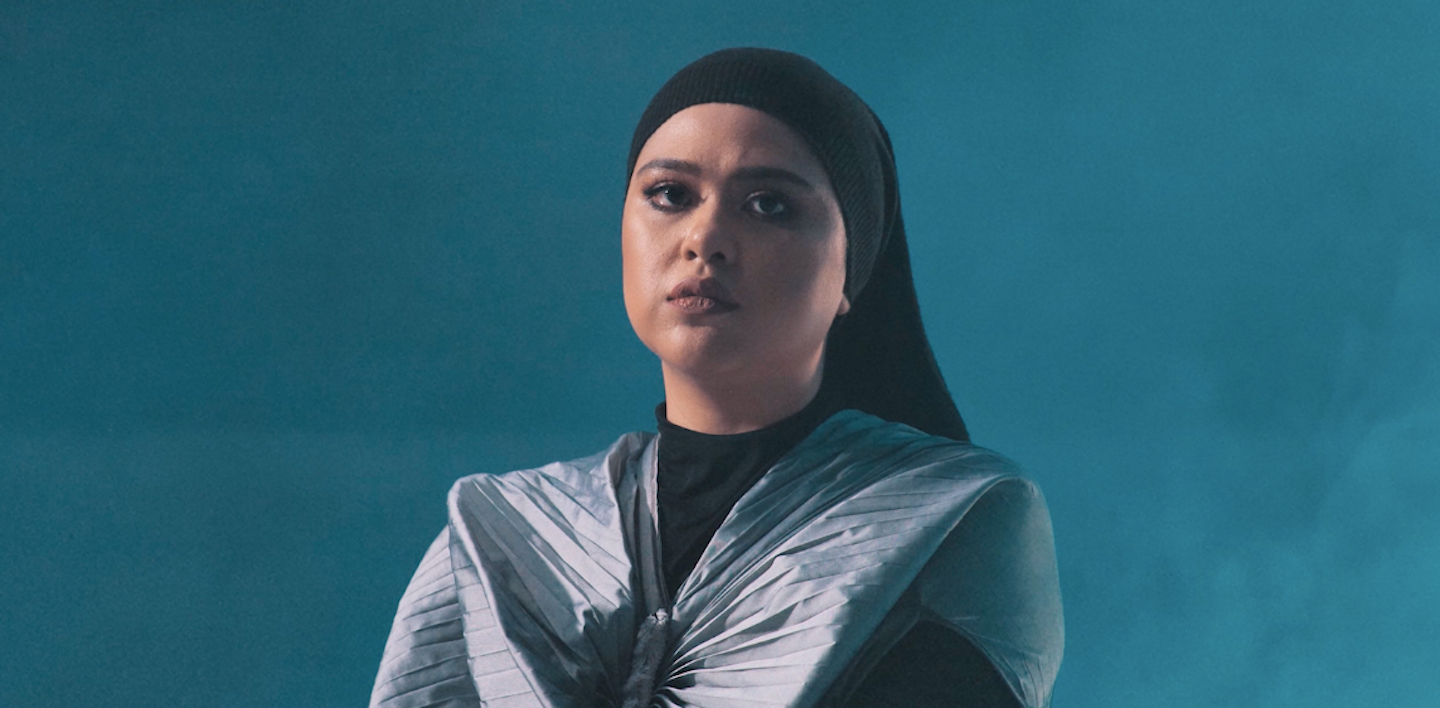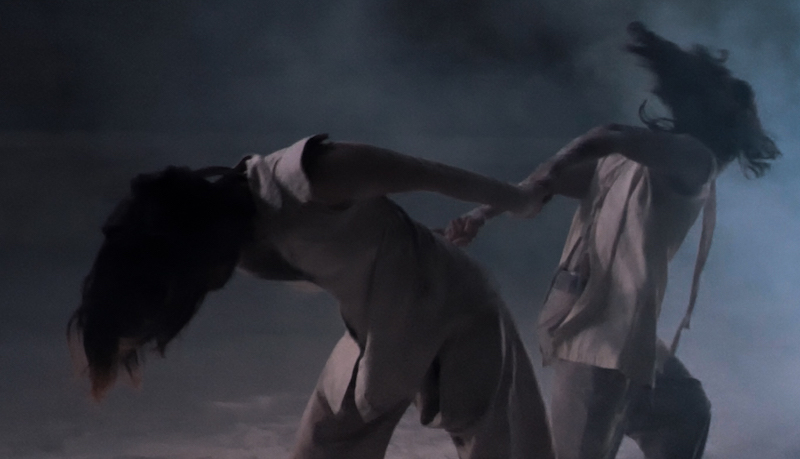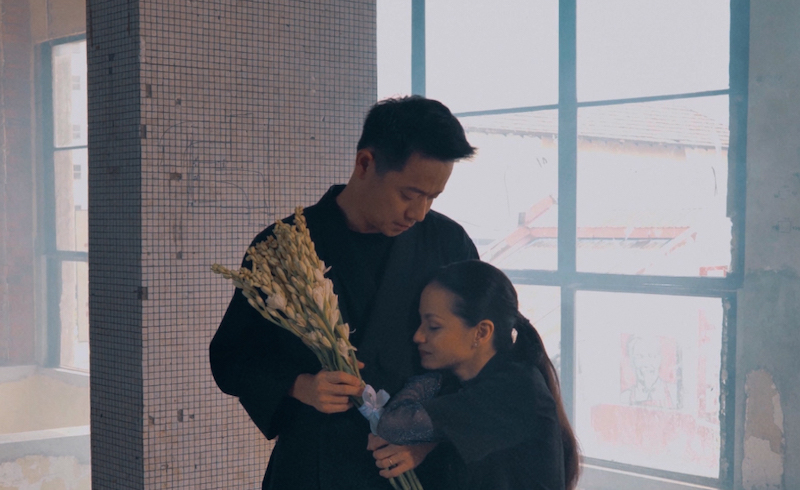
NJWA makes a strong statement about embracing interracial relationship in her latest music video (All photos: NJWA)
The lyrics in NJWA’s latest music video Take Love Back read like a handbook on tackling interracial relationships:
But they can say what they want/ I won’t change my mind
Don’t tell me what to do with my heart/ Or what to do with my life
Formerly known as Najwa Mahiaddin, the R&B songstress sheds light on a topic that remains largely a taboo, not only in current society but also pop culture that sometimes seems too craven to promote a colourblind image. The idea of interracial romance should be an antiquated concern, especially in a multifaceted country like Malaysia, yet we’re still bogged down by the dilemma of “Just because they say it ain’t okay”.
NJWA has never been squeamish about race, as demonstrated in her latest work directed by photographer Nadirah Zakariya, whose masterpieces have been exhibited in Ilham Gallery and featured in Vogue Italia. Shot at the recently converted iconic cinema RexKL in Jalan Sultan, the music video was intended for release between National Day and Malaysia Day to amplify the message of interracial love.
And to drive the point home, Sharifah Amani and Ng Choo Seong — the leads of the late Yasmin Ahmad’s interracial film Sepet (2005) — made a cameo by delivering powerful monologues that reminded us of their characters who were looking to break with convention and not be bound by societal expectations.
Take Love Back, which features prominent dancers Grace Ng and Nabil Zakaria who narrated NJWA’s story with emotive dance choreography, also documents the singer’s previous relationship that didn’t work out because of disapproval from her love interest’s family. The song carefully depicts how intolerance and acceptance can be two sides of the same experience.
Perhaps, one way for taboos to lose their authority is for us to talk or sing about it. Because love that is colourblind doesn’t mean we shouldn't talk about race. It means embracing and talking about it even more.
nz_njwa_stills-6.jpg

The last line in your music video, "Love knows no colour yet it’s the most beautiful shade", reminds us that race should never be exploited as a license to discriminate. How else should we foster a better racial understanding in modern times?
We need to go beyond the surface of what we think we know of each other and dig deeper to learn more. Tak kenal maka tak cinta. The internet can be a very dark and negative place, but we should encourage positive interactions, beginning with asking each other questions in utmost interest and curiosity such as, “What is the significance of this custom?”, “What is the history of this festival?”, “What are your traditions at home?”. And perhaps more importantly in these modern times, Malaysians should also join in and celebrate each other's cultural or religious festivities — I think that would really help in fostering not just tolerance and understanding but genuine love and respect for one another.
Take Love Back was inspired by a personal experience. How has that affected you as a person, as well as a musician?
As an artist, I’ve always believed that we have a responsibility and a voice. This personal experience has encouraged me to talk about it more openly, and to spread a message that resonates with many. This isn’t just my story — this is our story.
nz_njwa_stills-27.jpg

Do you believe that it’s not enough for interracial couples to be seen but also be heard? Many times, their voices have been drown out by a society that may not understand or accept interracial relationships.
Absolutely. A lot of people go through it, but many are afraid to talk about it openly for fear that they’d be misunderstood. With the release of this music video, I have been getting DMs from a lot of people who are either currently in an interracial relationship, or was in one. It’s important for people to know that they are not alone and there are others who are also in the same situation.
How do you feel about racial intolerance, especially in a diverse country like Malaysia that constantly promotes multiculturalism?
I feel it’s really upsetting that this is still happening in our country. Going back to what we discussed earlier, I believe this is due to poor judgement and a lack of knowledge and understanding. We are aware of the different cultures, but need to dig deeper to know and understand them better.
Nadirah Zakariya's work is known for celebrating womenhood, as well as the values of raw beauty. How would you describe your collaboration with her?
Working with Nadirah Zakariya was an absolute dream. We’ve spoken about a collaboration for years. I’ve always admired her work and the message behind it, so when this project came about I knew she would be the perfect fit. I couldn’t think of anyone better than Nadirah to translate my message and story visually — and she truly delivered.
nz_njwa_stills-35.jpg

The Sepet cameo by Sharifah Amani and Ng Choo Seong in your music video was a fitting tribute to Yasmin Ahmad. Which other films, music or figures have played a role in shaping your musical career?
During my time at Berklee College of Music, there was always a focus on the role of the artist and music in society. Artists like John Lennon, Bob Marley and Michael Jackson have often used their voices to create positive changes. This has made me think more about my role in society and how I can use my own voice to do the same.
What other themes or stories are close to your heart? Will you be telling these stories through music in the future?
I'm passionate about mental health awareness. These days, so many people are experiencing anxiety and depression. With the rise of social media, even young kids are suffering from them. In my future projects, I’d definitely like to focus on this.
Watch NJWA's music video below:


